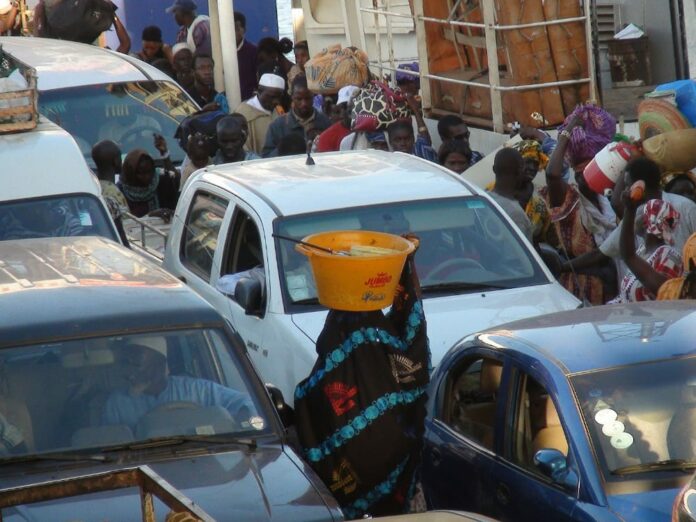By: Modou Touray
In the wake of the continuous increase in basic commodities and the high cost of living, private vehicle owners are forced to use their vehicles to carry passengers in order for them to take care of their economic needs.
Several privately licensed drivers have disclosed to The Fatu Network that their monthly income cannot sustain them and that the money accumulated from passengers helps to boast their income.
“I am a civil servant working in Banjul. I decided to use my vehicle at night and during weekends for the commercial town-trip service. The amount I gather helps me to cater for my household needs and buy enough fuel for my vehicle,” Lamin Jobe revealed.
High food and energy prices will affect the most vulnerable in society, especially in an extended family setting where most of their income is spent on food and clothing.
“Cost of everything is increasing, if you buy a cup of sugar for D10 today, the next day the price will increase to D12 or more. I was working at a local hotel as a receptionist, but my service is terminated due to a decline in the hotel’s earnings,” Ousman Jassey said.
A private vehicle refers to a motor vehicle transporting persons or property for which no charge is paid directly or indirectly by the passenger or by any other entity. In no instance shall a private vehicle be considered a commercial vehicle.
“I am a security officer with little earnings. I only depend on my monthly salary. I bought this vehicle when I newly return from Dafur, Sudan but I am broke now because all my money was spent on my house construction. I use my private vehicle to get money for minor family expenses,” A soldier, who begged for anonymity, told this medium.
Cost of living is the amount of money needed to cover basic expenses such as housing, food, taxes, and healthcare in a certain place and period. The cost of living is often used to compare how expensive it is to live in one city versus another. The cost of living is tied to wages.
Lamin Sarr is a businessman who also uses his private vehicle to demand fares from travellers.
“I am not making much profit in my business now, therefore I depend entirely on my private vehicle. I don’t give free rides now because maintaining a private vehicle is challenging.”
As the demand for a particular good or service increases, the available supply decreases. When fewer items are available, consumers are willing to pay more to obtain the item—as outlined in the economic principle of supply and demand.
“Fuel prices are costly, commercial drivers keep requesting more money from passengers. I took that chance to carry people when I am going to work in Kanifing. I use the money to add-up fuel and take care of other family needs,” Bakebba Nasso said.
“I took a loan from the bank to buy my vehicle, the bank is deducting some money every month from my salary and the balance is not much. The vehicle is meant to facilitate my daily travels to my workplace, but the high cost of living and economic hardship is forcing me to use it for commercial purposes.
The price of basic commodities is still unstable, and prices keep increasing meaning the average Gambia cannot afford their basic needs with little salaries without another source of income.




